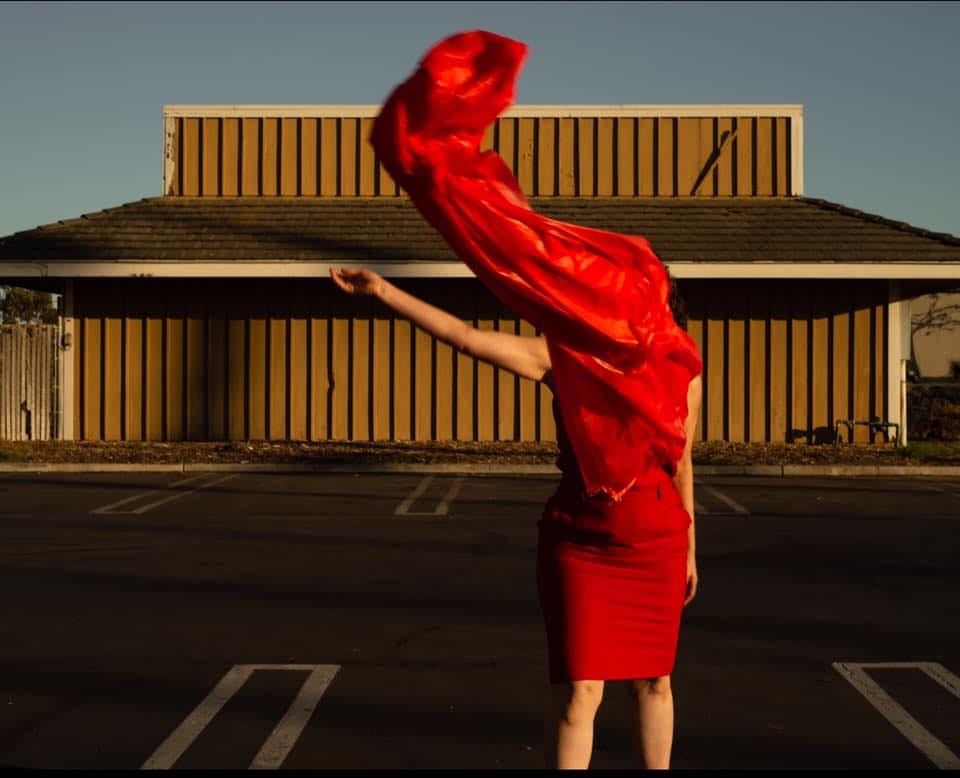Five Ways to Fight the Depressing Banality of Internet Culture
We are all drowning in a sea of irrelevance.
It is difficult, if not impossible, to describe Internet culture without betraying the woeful prejudices of my generation. For a long time, I skulked along the baseboards of my own curmudgeonly distrust of what I was seeing on Instagram, Snapchat, and TikTok, all while making an earnest effort to understand it. To me, Internet culture seemed weightless, feckless, a virtual form of one-upmanship that sometimes ended in Tide pod poisonings or the distressing “48-hour Challenge” where kids made a game out of going missing to earn virtual “points.”
I continue to marvel at the sheer fakery of it. We’ve curated second lives for ourselves, lives we perform online in a never-ending carousel of heavily filtered photographs: a beach, a sunset, us holding umbrella drinks, smiling up at our ubiquitous camera-phones, casually living our best lives for all to envy.
More than any generation of the past century, Zoomers (those born in the late 1990s to the early 2010s) have elevated fakery to high art. Now, an unfiltered photo on Instagram (with zits, undyed roots, and a carelessly applied eyeliner “wing”) looks unnatural, instead of the other way around. All women must have digitally pore-less skin, spidery fake eyelashes, and lips that look as though they’ve been inflated with a bicycle pump.
This is Internet aesthetic. “Snatched” waists, Rapunzel-like hair extensions, meaty thighs, and prodigious buttocks are the new normal in this virtual Eden. Social media has become a digital fantasyland of steatopygous blondes using status signifiers (grounded jets as Instagram backdrops, renting time in front of two-hundred-thousand dollar gull-wing sports cars, sporting champagne flutes that appear to hold Cristal (the preferred beverage of drug lords, Instagram models, and Saudi teenagers who gain notoriety for themselves by spending Daddy’s money on cars they’re not old enough to drive yet.)
It isn’t taste that creates Internet culture. It’s money. And not just any kind of money, but new money—new money that gives off its own odor. New money has to have the latest, biggest, most expensive. New Money has to be seen.

But to those of us of a certain age who don’t have the financial bandwidth to compete, or the desire to compete even if we did, that kind of conspicuous consumption smacks of desperation. We don’t envy it; we despise it. We despise it because it’s tacky. Most of the time, it takes no talent or discipline to acquire extreme wealth, much of which is stolen or inherited. The stratum of people who have it are often the sons and daughters of oligarchs, mobsters, shady property developers (Trump kids) and high-society princesses like Paris Hilton who managed to parlay her dignified old money status into crazy new money celebrity. It’s performative. It screams, “Look over here!” It grates on us because we have been conditioned to hate obvious status seeking.
As Edith Wharton’s heroine, Lily Bart, muses in House of Mirth about her rich friends: “Under the glitter of their opportunities, she saw the poverty of their achievement.”
But mostly we look down on new money’s need to be seen, to be recognized, to be envied, because the need is so desperately naked. Our attention has to be earned, and you had better be interesting, beautiful, talented, famous, or funny if you want us to pay attention to you. Otherwise, don’t bother asking.
But none of these conditions is true for young social media users. They reject taste and embrace conspicuous consumption. They aren’t ironic hate-watching the Saudi car kid like we are. They’re digging it.
Case in point. About three years ago, I had a conversation with my (then) eighteen-year-old daughter. We were talking about rap artist/social media personality Cardi B. I dared to point out that Cardi B. has no discernible talent. She can’t rap and is a walking billboard for plastic surgery (remember that “earned attention” part I mentioned earlier; obvious plastic surgery invalidates any claim to our collective attention—or at least, that used to be the case.) My daughter said, “Cardi B. isn’t much of a rapper, it’s true. But no one cares about talent anymore, Mom. If we like a person, we follow them on social media.”
“So, what do you like about Cardi B?” I asked.
“She’s real,” my daughter told me.
“No, she’s not. She’s plastic.”
“But she’s real about it. She makes no attempt to lie about her surgeries. Cardi B. looks great. Everybody wants to f*** her or be her. She’s not hiding who she is.”
More recently, I asked a twenty-something about pop star Drake’s penchant for buying ridiculously expensive Hermès Birkin handbags, which are stored in a two-story closet in his Toronto mansion for his future wife. Drake isn’t married. He goes through girlfriends like some men go through neckties. But always there’s the siren song that maybe, just maybe, some lucky girl—possibly one of his adoring fans—could become the next Mrs. Aubrey Drake Graham and then get her lacquered claws on all those pretty pretty handbags. This twenty-something (and plenty like her) was unable to see the creepy and manipulative aspect of Drake’s wall of status-y overpriced handbags and merely swooned at the opportunities possessing said handbags would give her to “flex” on Instagram. “I’d thirst-trap all those bitches,” she sighed.
The problem with having a culture that is primarily status-driven and not taste- or talent- driven is that a dreary sameness has not only permeated the fabric of society, it has stifled change. Being a Gen Xer, the last generation to experience an analog youth before a digital adulthood, I remember the strong cultural flavors of the seventies (Afros, bell-bottoms, synthetic fabrics, Bonne Bell cherry-flavored Lip Smackers, Chic’s anthem “Good Times”), the punky aesthetic of the eighties (shoulder pads, “smoky” eye makeup, Spray Net, fingerless lace gloves, sculpted hair, glitter, Orangina, Gordon Gekko), and then the schlubbier grunge look of the nineties (diners, flannel shirts, talk shows, Reservoir Dogs, old rock records, slacktivism, Pearl Jam, alternative weeklies). Every decade had its own aesthetic, each one more dramatically different than before.
Until now.
About fifteen years ago, I started noticing that a certain blandness had crept into American culture. The aughts, the tens, and especially the twenties (so far) have no discernible look or feel to them. They are, perhaps, characterized by the Internet aesthetic I talked about earlier (Kardashian bodies and pneumatic lips with heavily filtered faces), but no one seems to be pushing back against the fakery or trying to reestablish generational lines. In times past, every new generation sought to be in defiance of the old one by pushing boundaries. The only boundaries that seem to be pushed these days—culturally, at least—are the disavowal of old last-century totems of upward mobility, such as getting college degrees. Even if they wanted them, young people can’t afford them. Why go into ruinous debt just to work in an office?
Still, I attributed my growing sense of cultural stagnation to the fact of getting older. What did I know about youth culture? Not a lot. On the lemonade side, the Gen Zers seem to be the least racist generation our country has produced. Inspired by vast online communities of queer and non-binary youth, they embrace same-sex relationships and gender fluidity in a way that I would have never thought possible.
Missing, of course, is the elbowing aside of one generation in favor of the next. There’s no edge. Culture itself is melting like a birthday cake left out in the rain. Our lives are online, and digital culture has become monoculture. It’s all the same cat videos, fratty Internet challenges, status signaling, and thirst traps. These are not the things that move a culture forward, and it is my belief that they don’t qualify as a “culture,” period. We are, in the words of author/sociologist Neil Postman, “amusing ourselves to death.”
How then do we fight back? By clinging to the vestiges of a dying empire? Is there any way to fight back against a digital encroachment that is draining us of real cultural change, non-irrelevant innovation, edge, critical thinking, and most importantly, our ability to maintain focus? Or are we going to go gently into that (not so) good night of memes, endless scrolling, shallow Internet friendships with people we will never meet in real life, and a death sentence of digitally-imposed isolation?
It’s hard to fight back against something we can’t see. What’s astonishing is how greatly the visible (us) are impacted by the invisible (love, lust, faith, yearning, viruses, or in this case the etiolation of our culture). But the facts are there. Every week, there seems to be a new article about late diagnoses of ADD/ADHD for adult women. Male or female, we are having a harder time than ever with collective inattention. We are used to being constantly entertained by our pocket computers. We have lost the ability to handle random moments of boredom. Most of all, we are all addicted to our smartphones. Very few of us are smartphone refuseniks anymore.
Here then are some ideas for fighting back against Internet culture. This list is only preliminary, requires more fleshing out, and fails to address the bigger issue of how to combat digital autism itself. But it’s a start.
Fight for your focus. You must first recognize that your “focus muscle” needs work before you will ever be motivated enough to take it to the gym, but if you’ve been unable to focus in recent years, now’s the time to take it back. You can do this in several ways: meditation, which helps to recalibrate your mental and emotional health as well as your attention; reading books and long articles, downloading software that tracks your social media use, and actually paying attention to the person in front of you during face-to-face interactions. That last one especially. Good conversation is fast becoming a lost art.
Read physical books, not virtual ones. Yes, I understand that sometimes we don’t have a choice. Paper books are more expensive and less convenient to acquire than ebooks, but multiple studies have shown that when we are holding a book in our hands, feeling its textures, inhaling the perfume of its bindings, we not only absorb more information, we retain it. Remember: it’s our collective focus we are fighting for. Reading marshals that focus like nothing else.
When possible, where possible, visit museums and art galleries. Not just high-brow establishments, but student art fairs, street art cooperatives, etc. Form opinions about what you like. Don’t let anyone else, especially “experts,” tell you what to think or enjoy. Look for any cultural road less traveled. We need to support these artists. They are the only ones trying to move the culture forward, and chances are, the best artists are the ones you’ve never heard of.
Time and geography allowing, choose in-person meetings over virtual ones. We are losing our ability to relate to and connect with one another (this is especially true of Zoomers), but they aren’t the only ones. We need to monologue less and listen more. Attentively listen. Without-checking-our-phones listen. Put the phone away. Have a conversation with another human being and make paying attention a priority. Never underestimate the great benefit of spending time with friends.
Cultivate your own taste and opinions on art, literature, fashion, music, and movies. Dig deep. Move beyond Marvel comic franchises and Disney fare. Dress the way you want to dress, without regard for other people’s opinions. Become your own culture by pushing boundaries, thinking differently—and most importantly, acting without regard for how it’s going to look “on the ‘gram.” By openly rejecting Internet culture, you will innovate by default. Want that. Want better.
Don’t settle for digital mediocrity. Aspire to more than collecting likes and followers. Take your life back, take your focus back, and take your culture back.
Cultivate a you that exists outside the digital.
Copyright © 2022 Stacey Eskelin
I am super curious to know what your thoughts are, so be sure to share your thoughts in the comments section below.







I read to the end of your article with anticipation, wanting your "five ways" to drive inspire me to action, to go to the ramparts. But, I was, I must say, a little disappointed because the advice would fail, methinks, to penetrate the mind of those who grew up in the digital ecosystem. Those of us who had a life before smartphones get it, but, we are a dying breed, and we're probably doing most of what you advise anyway.
What we need here is an "anti-Vietnam" movement. There was a war; there was a rationale to getting the hell out; there was a generational divide; there was a moral dimension to the movement; there were leaders and heroes on the protest side, and real villains in opposition, there was a supporting cast amongst musicians and artists. And so on.
So, where's our Vietnam when we need one? Well, it ain't found in geography. I think it's hyper-capitalism. There is an interlocking symbiosis of giant corporations who, with massive computer power, diabolical algorithms and quarterly profit objectives have seized control of our minds with a kind of hypnotic incrementalism that has us in the grip of their matrix.
The Vietnam protest movement did not start as a mass movement. It started when a few started to articulate the outrageous "anti-communist" nonsense that evolved since the end of WW2 and shaped the politics of the 20th century and resulted in the Cold War and then arrogant barbarities that America imposed on Vietnam and elsewhere. It was during the 20th century that American style capitalism became the prime mover of the American empire. Eisenhower had anticipated it by his identification of the military-industrial complex, but the corporate complex was much more complex than that.
Going to museums, reading books in print form, dressing differently etc cannot overcome the power of hyper-capitalism. An honest to god revolt might do it, if it catches fire.
Plato in the Phaedrus(? not actually too sure. I realize it is a crime against god and reality to say this, but I despise Plato and spend no more time on him than I must. I'm with Thackeray and his evaluation of Socrates: The more I read about him, the less I wonder that they poisoned him) expresses his despite for paper books, because they weaken the memory. This feeds my educated distrust of those who would condemn eBooks as inferior. The fact is, they are too recent an invention to really know what the long term differences might be (if any.) (A professor of my acquaintance said he preferred dead-trees because he remembered his annotations by "seeing" where they were in the book. Trouble is, he was no better at finding his notes than I was at finding *his* notes. On my kindle, I simply scrolled through the list or did a text search.)
There's a group I'm a part of that meets about once every month (virtually) called "Socrates Salon." The central theme is conversation, bring folks together over a topic and allow everyone to have their say, and then respond. Living where I do (the asshole of Southern Illinois, where dreams go to die) over any given month, this is often the only real conversation I ever have. (I don't count talking to the checkout clerk at the grocery. "Your total comes to ... " is not a conversation.) I've studied the problem long enough to know that there simply is no solution. I can't afford to move, I can't afford to get out more; and the people down here are almost universally Christian Dominionist neo-Fascists who believe God the father, the son, and the holy spirit, are Trump, Don Jr., and Ivanka.
I almost didn't look up "Thirst Trap." I felt a little like Sean Bean in The Martian: "I typed it into Google. Don't."
Finally: I have a flip-phone. I will never have a Smart Phone. Internet access is through a dedicated device. Reading is through a dedicated device. Using the phone is through a dedicated device.
All you kids get off my lawn.